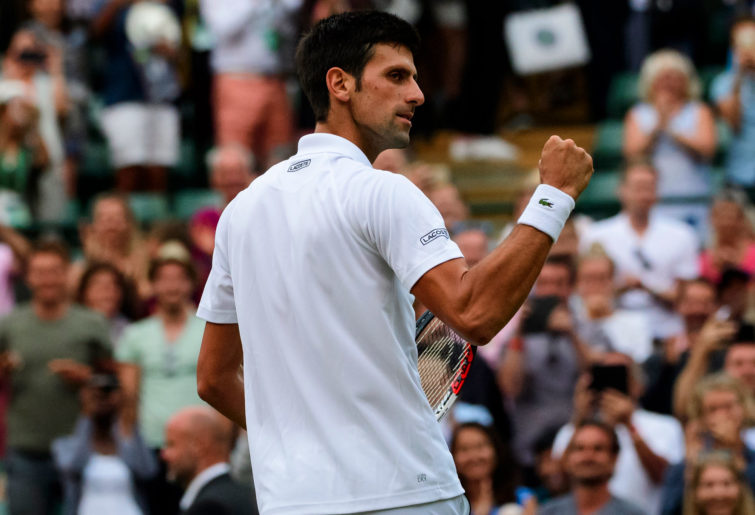Demon slays the King: de Minaur savours 'once in a lifetime' moment after knocking off Nadal on clay
Rafael Nadal has hailed the brilliance of Alex de Minaur, calling him "a great player" after the Australian forced the Spanish legend to say…
Opinion
The past year or so of Novak Djokovic’s public life has been interesting to say the least.
Having received increased hostility from centre court crowds at the larger tournaments in 2018 and 2019 – with some treatment being especially distasteful during matches against Roger Federer – it seemed like, from Wimbledon 2019 onwards, Djokovic had begun to embrace his role as provocateur and aggravator.
This didn’t apply to strictly on-court matters. Djokovic was also becoming more outspoken on his cultural and social views regarding the tennis community and the world in general.
The western countries that tend to host the larger tennis tournaments have seen a cultural change over the past decade, with a more inclusive and tolerant society emerging. Old-school ideas like the glorification of hyper-masculinity and unequal pay between men and women are eroding.
This has had a noticeable influence on professional tennis culture. Tennis is a sport played largely in Western Europe, North America and Australia.
Most of the top male players have adapted to the cultural change and adjusted their public behaviour accordingly.
The hyper-macho energy of the likes of John McEnroe, Jimmy Connors and Ilie Năstase has, with occasional exception, eroded among the most visible male players. Men have acted more circumspect on and off the court, knowing they’ll be interrogated in press conferences or dragged on social media if they stray from the new standards expected of them.
Djokovic has been a man apart in this sense, though.
Djokovic has been reluctant to support equal prize money for women at the majors, has stated that he would not want to get a COVID vaccine, and has – along with his father – proudly displayed his Serbian nationalist leanings. This has angered many in the liberal mainstream of tennis.

(Photo by TPN/Getty Images)
One of Djokovic’s most recent stands against mainstream culture came just over two months ago when he hosted the Adria Tour tennis tournament across the Balkans. No COVID regulations (such as masks and social distancing) occurred during the tournament. By the end of the tour, a number of players – including Djokovic himself – and their associates had tested positive for COVID-19.
The whole venture was met with scorn and derision from the tennis world, who held Djokovic responsible for jeopardising the health of many.
Djokovic, however, dug his heels in, and a few weeks ago remarked that “If I had the chance to do the Adria Tour again, I would do it again.”
This was perceived as Djokovic thumbing his nose at the culture within the tennis world of mass panic at the virus.
Djokovic’s latest off-court venture, however, bought things to breaking point.
Just before the beginning of the US Open last week, it emerged that Djokovic had resigned from the official ATP Players’ Council and formed a breakaway players association. The new association of around 40 players comprised only men.
Djokovic’s attempt to seize control of the direction of the game had become well and truly evident, and with Federer and Rafa Nadal not participating in the US Open, it seemed he was almost certain to inch closer to the men’s major tally leader board.
Djokovic looked like a man on a mission, both on and off the court until the debacle on Sunday.
The linesperson incident has proven to halt Djokovic’s charge. He has been well and truly humiliated on the global stage to the point that he couldn’t bear to attend the press conference after being defaulted.
A couple of elements in the aftermath of this incident will be interesting. Firstly, how the crowds react to Djokovic when stadiums are filled again. In the past, despite receiving derision from clear Federer fans, he has always had a sizable group of admirers. Will he now be hated in a way we have never seen before?
Secondly, and perhaps the more immediate thing to watch for, will be whether Djokovic alters both his on-court and off-court personality. Will he continue in attempting to influence the game with his old-school, traditionalist views?
Or, perhaps like George Foreman after suffering humiliation to Muhammad Ali in 1974, will Djokovic emerge a more likeable, empathetic individual?